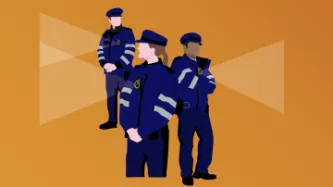Search
Content type: Long Read
TAKE ACTION TO STOP THE END OF PRIVACY IN PUBLIC1. IntroductionThe use of facial recognition technology (FRT) by law enforcement and private companies in public spaces throughout the UK is on the rise. In August 2023, the government announced that it is looking to expand its use of FRT, which it considers “an increasingly important capability for law enforcement and the Home Office”. The indiscriminate use of this dystopian biometric technology to identify individuals in public spaces is a form…
Content type: Examples
Following the January 6 invasion of the US Capitol Building, federal law enforcement used a wide variety of surveillance technologies to track down participants, including facial recognition, licence plate readers, policy body cameras, and cellphone tracking. While many of the people being tracked and charged are members of white supremacist groups, human rights organizations such as ACLU and EFF are concerned that the level of surveillance was excessive and poses a threat to peaceful protests…
Content type: Examples
During the Black Lives Matter protests of summer 2020, US police took advantage of a lack of regulation and new technologies to expand the scope of people and platforms they monitor; details typically emerge through lawsuits, public records disclosures, and stories released by police department PR as crime prevention successes. A report from the Brennan Center for Justice highlights New York Police Department threats to privacy, freedom of expression, and due process and the use of a predator…
Content type: Explainer
What do Body Worn Video cameras do?
Body worn video (BWV) cameras can be attached to a police officer’s clothing – often at chest, shoulder or head level – and record video, including sound, from the officer’s perspective.
BWV cameras will probably be visible to you, and when it’s recording, a flashing light should appear on the device.
How might body worn video cameras be used at a protest?
BWV cameras may be used at protests to monitor actions of protestors.
They do not usually…

